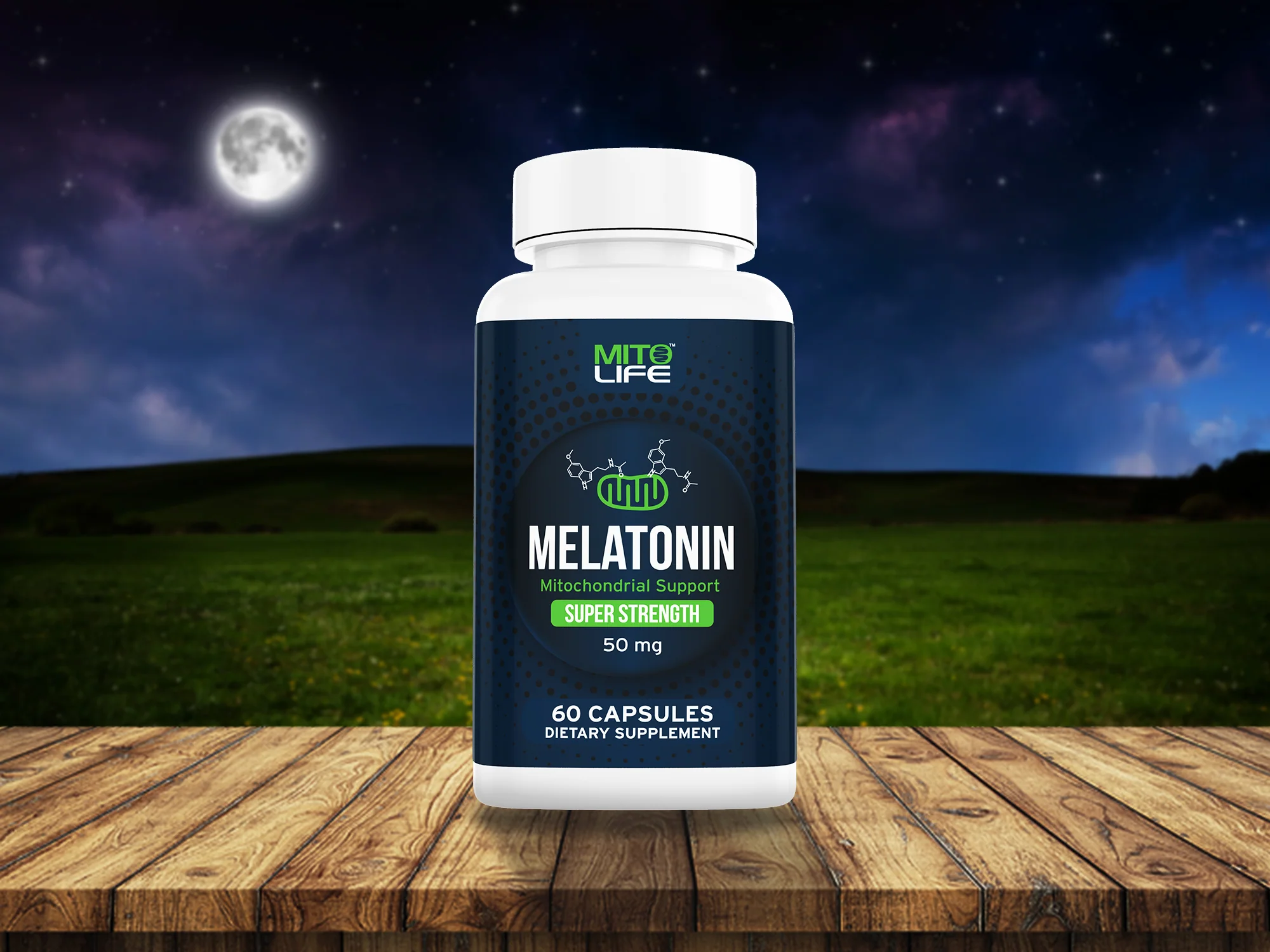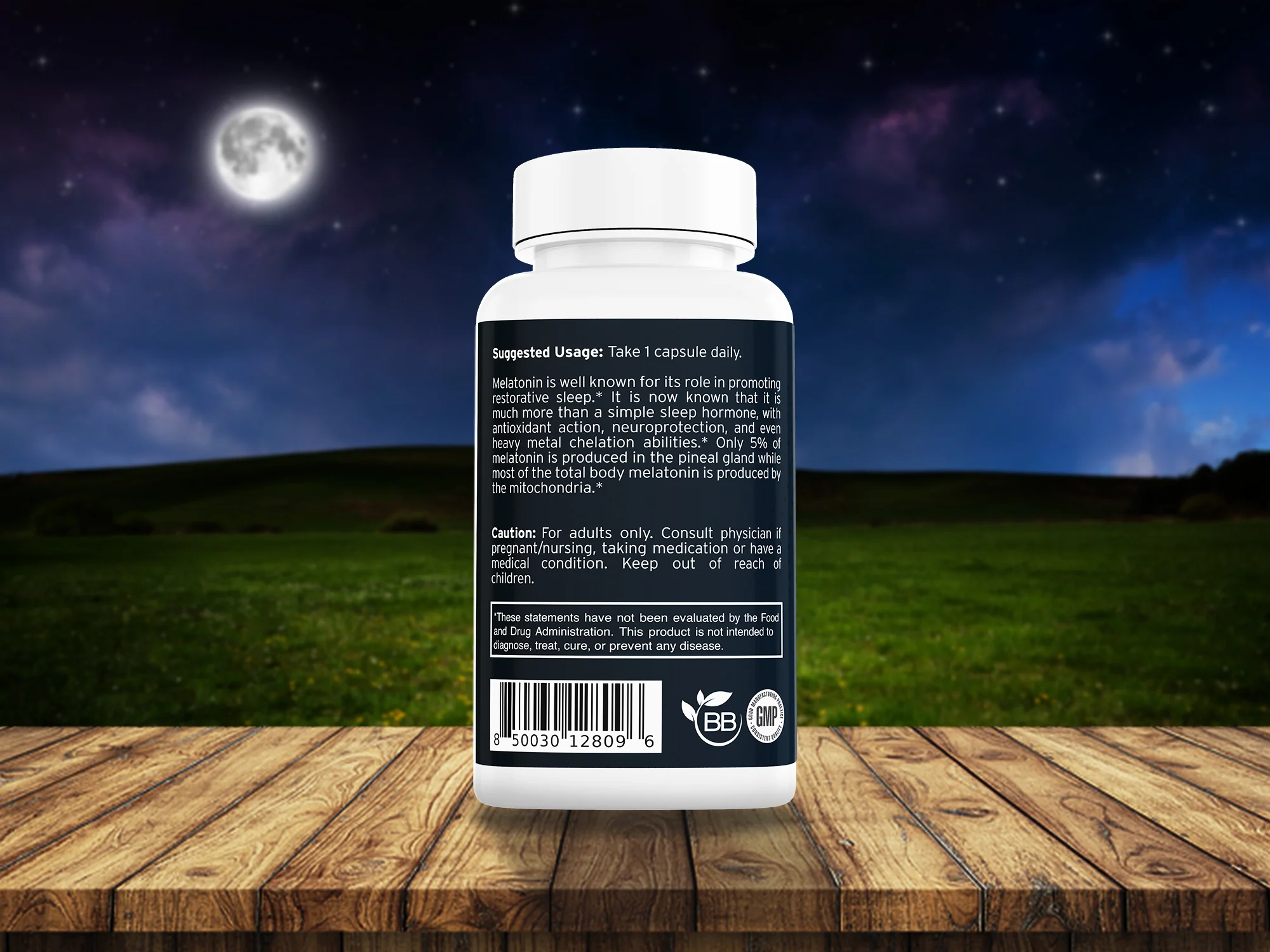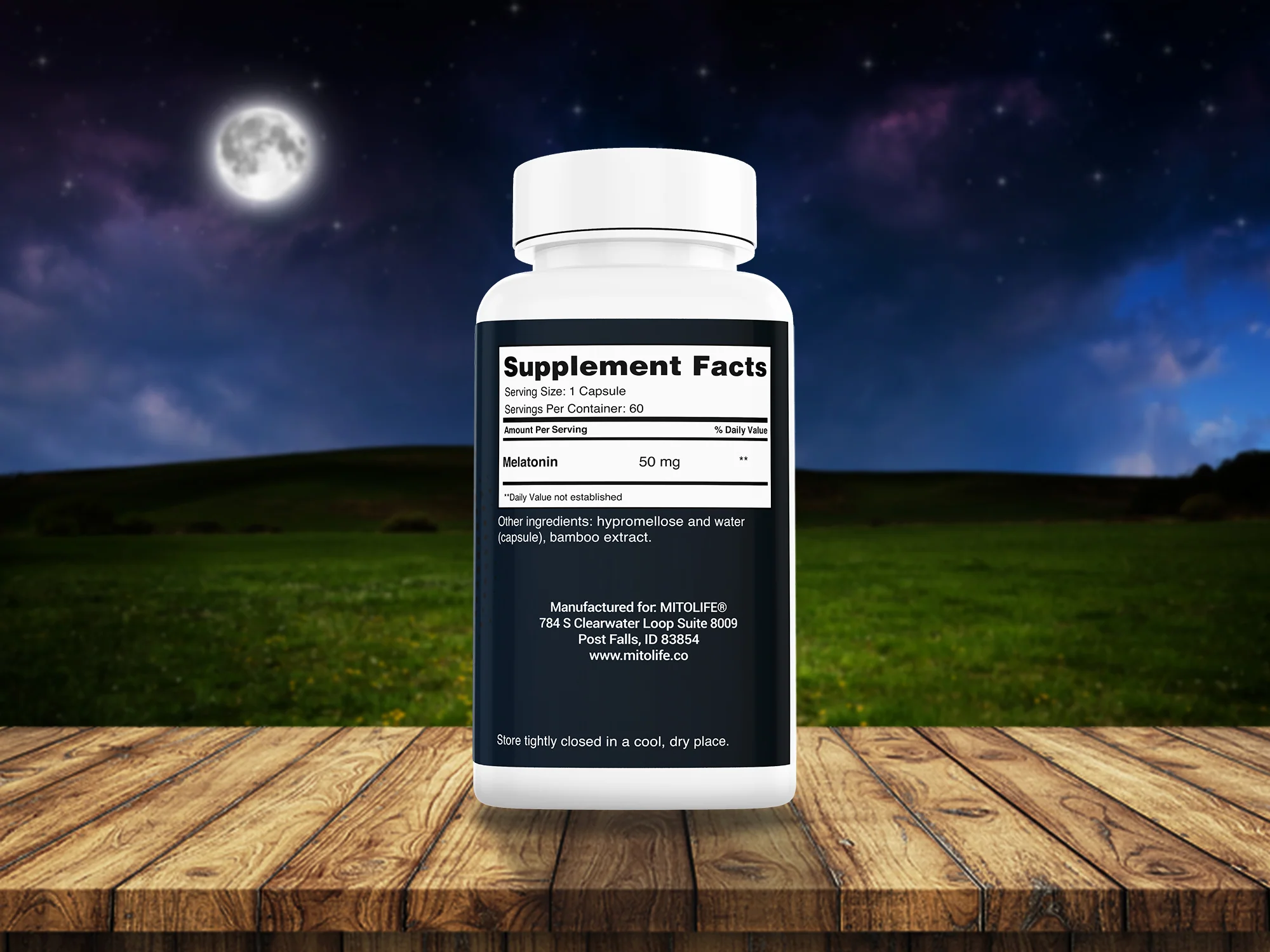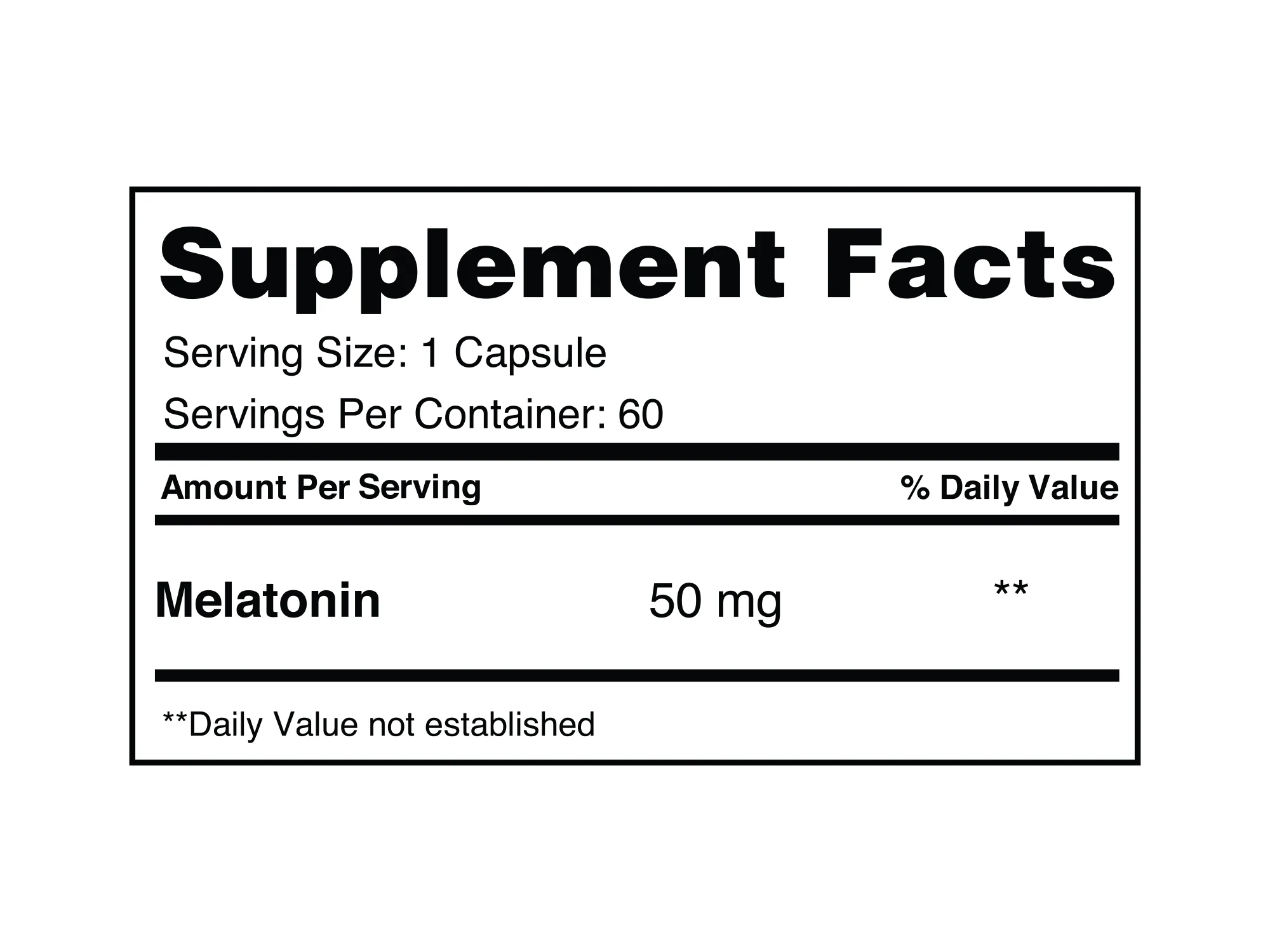Description
Melatonin is one of the most misunderstood miracle compounds. Often called “the sleep hormone” it is lumped in with quick fixes and hormone therapy.
The reality is that melatonin is a master antioxidant and its beneficial effects extend far beyond sleep improvement. Before we dive into the details lets bust three myths that we often hear about melatonin.
Myth 1: Melatonin is mostly secreted by our pineal gland.
Actually, melatonin production by the pineal gland only accounts for 5% of total melatonin production. The majority, 95%, is produced by mitochondria in every cell throughout our body and is not regulated by dark-light circadian rhythm cycles.
Myth 2: Supplementing exogenous melatonin will lower our endogenous production.
The truth is the exact opposite. Taking exogenous melatonin has been shown to increase endogenous production. It does this by reactivating the pyruvate dehydrogenase complex to produce the necessary substrate acetyl Co-A for melatonin synthesis.
Myth 3: Melatonin is mostly a sleep hormone that regulates our circadian rhythm.
While melatonin does help regulate our circadian rhythm, it also scavenges free radicals, increases ATP production in the mitochondria, regulates glucose metabolism in every cell, regulates insulin secretion, maintains optimal mitochondria membrane potentials, modulates the immune system, and has an overall anti-aging effect on the body.
By 15–20 years of age we experience, on average, an 80% decline in melatonin levels and that decline continues into old age (Waldhauser, et al 1988). When we add to this bright light at night and electromagnetic radiation (EMR), we have a recipe for the lowest melatonin levels in human history. Could there be a connection to increased rates of disease?
What we’re really talking about is mitochondrial integrity. Melatonin levels in mitochondria are about 100× higher than the levels found in the blood (Beaupre, et al 2021). Without sufficient melatonin our power plants in our cells can’t perform like they should and we are vulnerable to being ravaged by oxidative stress. Mitochondria are the major source of reactive oxygen species (ROS) as a byproduct of mitochondrial oxidative metabolism. Melatonin is one of the main compounds that mitochondria use to clear those ROS (free radicals).
Melatonin and its metabolites not only detoxifies reactive oxygen species, but it will also clear reactive nitrogen species. It also limits mitochondria-related apoptosis and maintains the efficiency of the respiratory chain complexes.
Melatonin could accurately be described as the premiere mitochondrial enhancer.
When our mitochondria are functioning optimally, tissue function where those mitochondria are located become optimal.
What happens when the pineal gland is removed?
Pinealectomy deprives animals of melatonin that are normally secreted by the pineal, but not from other organs. The results show that early pinealectomy accelerates the amount of oxidatively damaged products that accumulate throughout a lifetime and exaggerates membrane rigidity (Reiter, et al 1999).
As you can see, melatonin is much more than a sleep enhancer!
SUGGESTED USAGE:
Take one or more capsules per day with or without a meal.
STUDIES:
Alterations in nocturnal serum melatonin levels in humans with growth and aging
Augmentation of indices of oxidative damage in life-long melatonin-deficient rats




